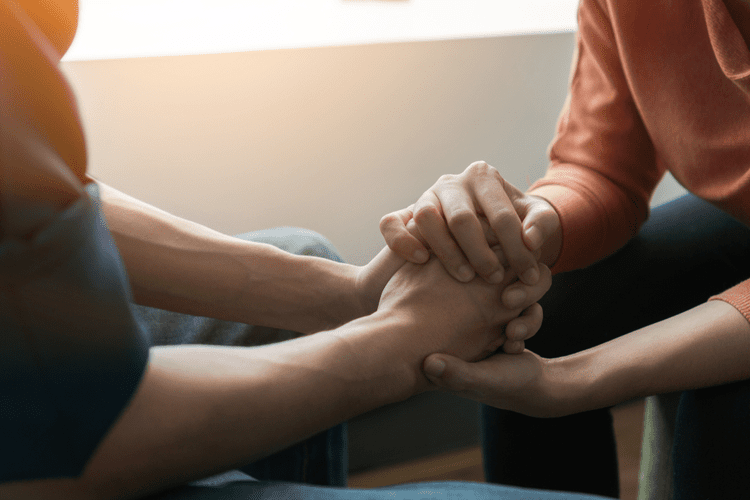When this happens, drink lots of water and visit your doctor right away. Kidney damage treatment usually includes measures to help control symptoms and does alcohol kill kidneys reduce complications. If your kidneys are severely damaged, you may require treatment for end-stage kidney disease. Alcohol may indirectly increase the risk of developing a urinary tract infection (UTI).
Physiological Effects of Alcohol on the Body
A little alcohol—one or two drinks now and then—usually has no serious effects. Alcohol acts as a diuretic, meaning it increases the rate at which you excrete fluids. Specifically, alcohol inhibits the release of antidiuretic hormone (ADH), a hormone that helps the kidneys retain water. When ADH is suppressed, your body produces more urine than usual, increasing the likelihood of dehydration.
The Kidneys and Their Role in the Body
For example, a person with a UTI https://www.budgetrepairs.co.za/2025/04/28/sober-living-vs-halfway-house-what-s-the-3/ that spreads to the kidneys can develop sepsis, a dangerous infection of the blood. Kidney pain usually appears in the back, on either side of the spine, just under the ribs. A person who experiences this type of pain, especially if it intensifies over hours or days, may have a serious illness and should speak to a doctor.
- The kidneys help filter the blood, including by filtering out harmful substances such as alcohol.
- Over time, repeated dehydration episodes can reduce the kidneys’ filtration capabilities, eventually affecting other organs and systems in the body.
- The kidneys play a crucial role in filtering harmful substances from the blood, including alcohol.
- Alcohol causes an imbalance of vitamins and minerals, disrupting calcium absorption.
Liver or Kidney Disease

Alcohol also increases blood pressure and affects the kidneys‘ ability to maintain the correct balance of fluids and electrolytes in the body. If the pain is due to muscle strain or inflammation from alcohol consumption, treatment might include resting and hydrating. For conditions exacerbated by alcohol, such as kidney problems or liver disease, a more comprehensive approach including potential lifestyle changes to manage alcoholism may be necessary. Alcohol consumption has always been linked to a number of diseases and health conditions, most especially liver and kidney issues. But a lot of people are unaware of the link between drinking alcohol and back pain. While chronic back pain can lead to alcohol dependency (drinking the pain away), overconsumption of alcohol can actually contribute to back pain, which can be traced back to your liver.
Experiencing Kidney Pain After Alcohol Consumption: Causes and Care
The condition refers to the complete blockage of the renal pelvis, which eventually leads to flank pain or back pain. If you notice kidney pain after binge drinking, specific care measures can help while you await a check-in with a healthcare provider. If you have a history of disordered drinking behavior, your liver may work less efficiently or be affected by liver disease. In this case, your kidneys may be receiving less blood flow and causing pain. If you believe that you or someone you know is at risk of kidney failure and are experiencing these symptoms, seek immediate medical attention. There are no specific symptoms of kidney damage solely due to alcohol use.
It is important to note that the effects of alcohol on kidney health are not limited to those with existing kidney disease. Alcohol can cause changes in kidney function and make them less able to filter blood. This can lead to high blood pressure, which is a common cause of kidney disease. Therefore, it is recommended to limit alcohol intake to protect kidney health. Chronic and heavy alcohol consumption can potentially lead to kidney failure. This occurs as a result of long-term damage to the kidneys from dehydration, high blood pressure, and the toxic effects of alcohol on kidney tissues.
Ambien Withdrawal Symptoms – Dangerous Side Effects Exposed
Your kidneys play a crucial role in filtering waste and excess fluids from your body. However, when you consume alcohol in excess, your kidneys face additional stress. The extra stress can continue to increase over time and cause the kidney to deteriorate. The diuretic effect of alcohol can lead to dehydration, putting extra strain on these vital organs.
Can You Reverse the Effects of Drinking on Your Kidneys?
Even moderate or occasional drinking can have immediate effects on your kidneys. These short-term effects may not seem alarming at first, but they can pave the way for more serious issues if they become habitual. Treatments include prescription medications, over-the-counter pain relievers, IV therapy for dehydration, and, in some cases, surgery for kidney stones. Recognising symptoms early and seeking medical advice can prevent irreversible kidney damage. Chronic alcohol use interconnects with liver damage, elevating kidney disease risks.
Frequent urination while drinking contributes to loss of fluids that can precipitate these conditions. Additionally, individuals may notice that they urinate more often when drinking, which is a direct effect of alcohol on the kidneys’ ability to conserve water, exacerbating dehydration. The liver metabolizes alcohol, and excessive drinking can strain this vital organ. Strain on the liver can lead to liver disease, which in turn may cause referred pain in the lower back. Similarly, kidney function can be impaired by heavy alcohol consumption, sometimes causing kidney pain that is mistaken for lower back pain.

Monitoring alcohol consumption through an app or diary can help individuals stay within recommended limits. The kidneys are essential in maintaining the body’s fluid levels and keeping the right balance of chemicals and electrolytes in the blood. Alcohol affects these functions by disrupting the hormonal control mechanisms Alcohol Use Disorder that govern kidney function. In the absence of ADH, the kidneys produce more dilute urine, allowing more water to leave the body.

Neueste Kommentare